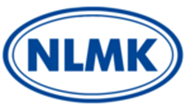Market Segment

November 10, 2020
Still No Progress in NLMK Pennsylvania Labor Dispute
Written by Sandy Williams
The strike by United Steelworkers at NLMK Pennsylvania is approaching its third month with very little progress made in negotiations over wages and healthcare. In particular, the USW and NLMK are at an impasse over the structure for a health plan. NLMK would like to transition employees from a PPO to a high deductible plan. The company says the healthcare package it is offering is financially better for workers than the one proposed by the union.
NLMK’s offer also increases the average wage to $28 per hour over the four years of the contract.
At the end of October, the Pennsylvania Department of Labor and Industry’s Office of Unemployment Compensation Benefits ruled after a review of the dispute that striking workers were eligible for unemployment benefits. Union officials hope the ruling will be an incentive for NLMK to improve its contract offer. Workers have been on strike since Aug. 22.
The last bargaining session was held on Oct. 30 and the next is scheduled for Nov. 12. NLMK Pennsylvania continues to operate at reduced production manned by salaried employees.







